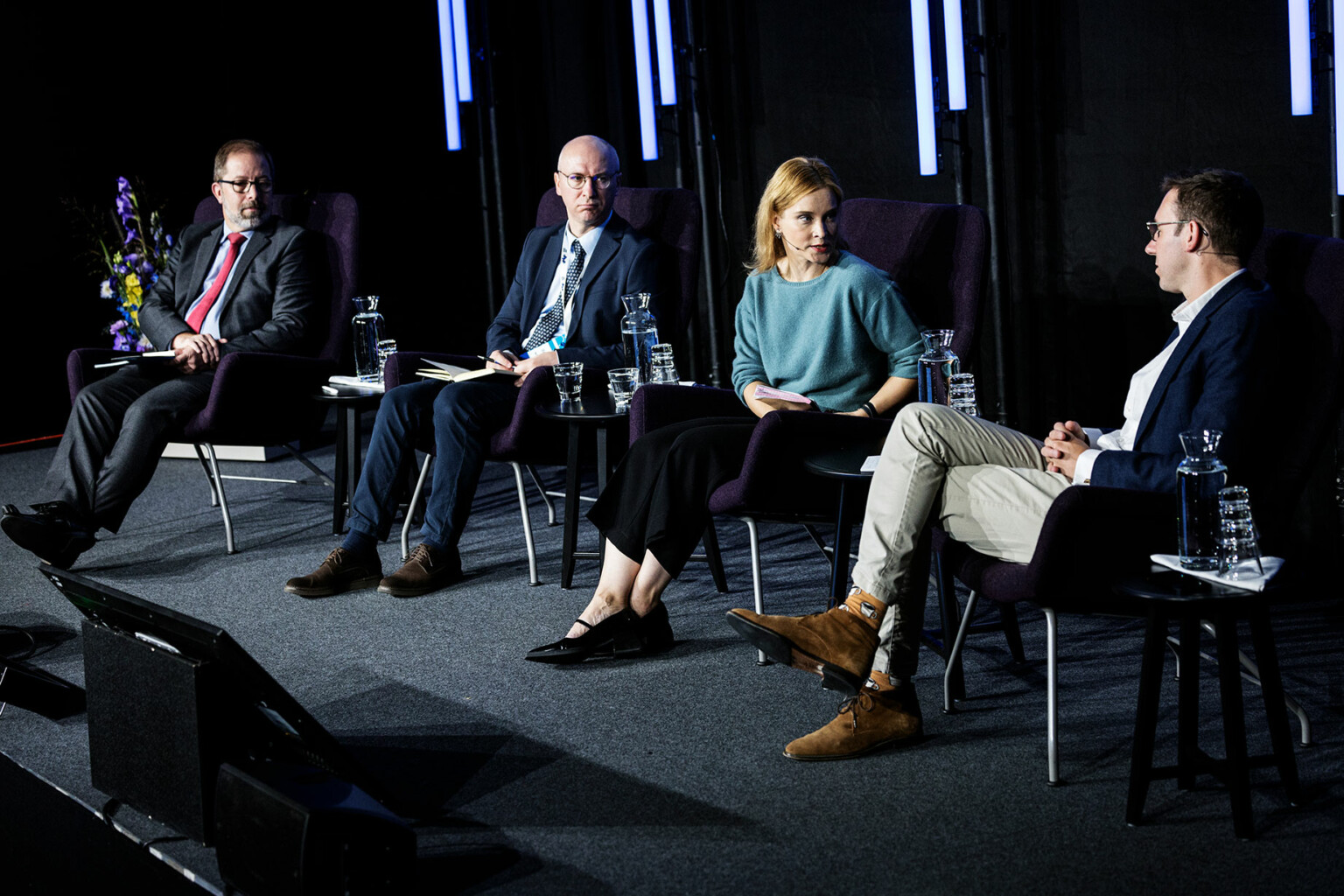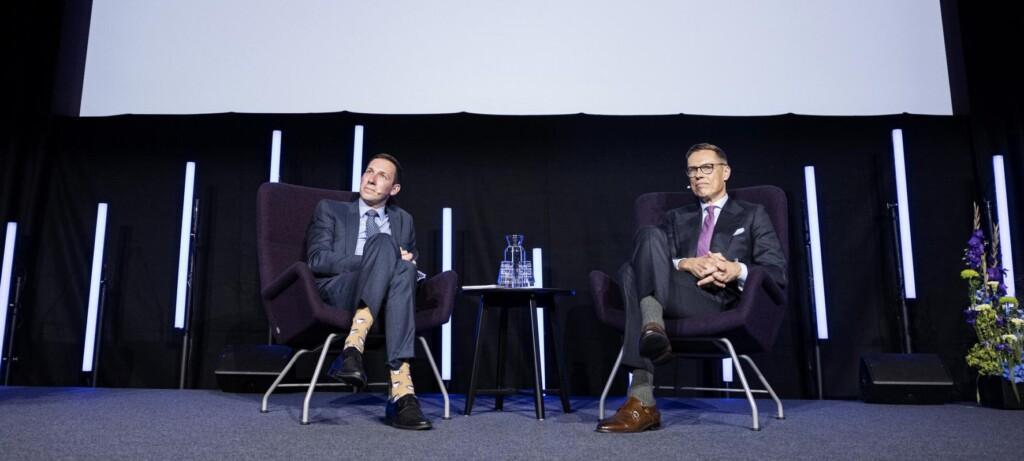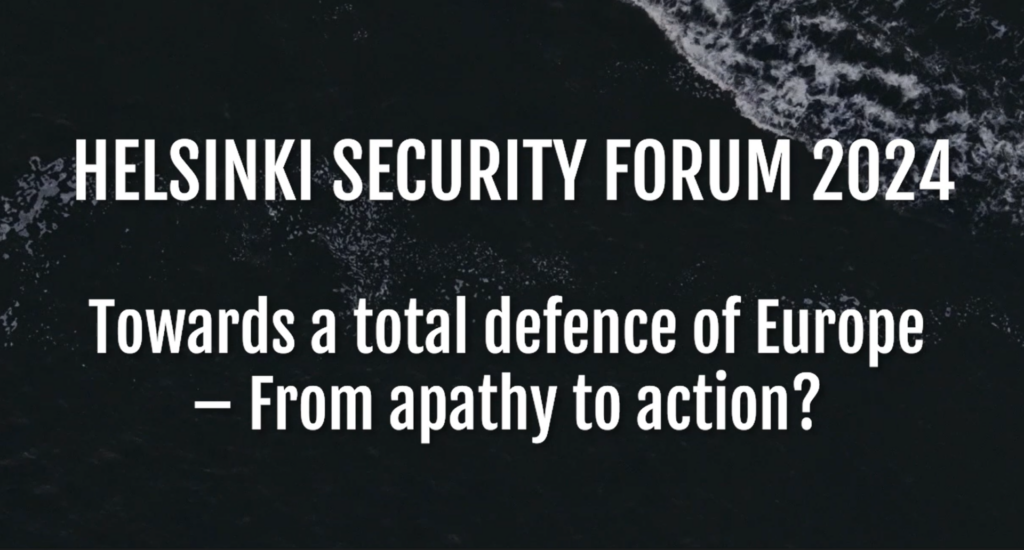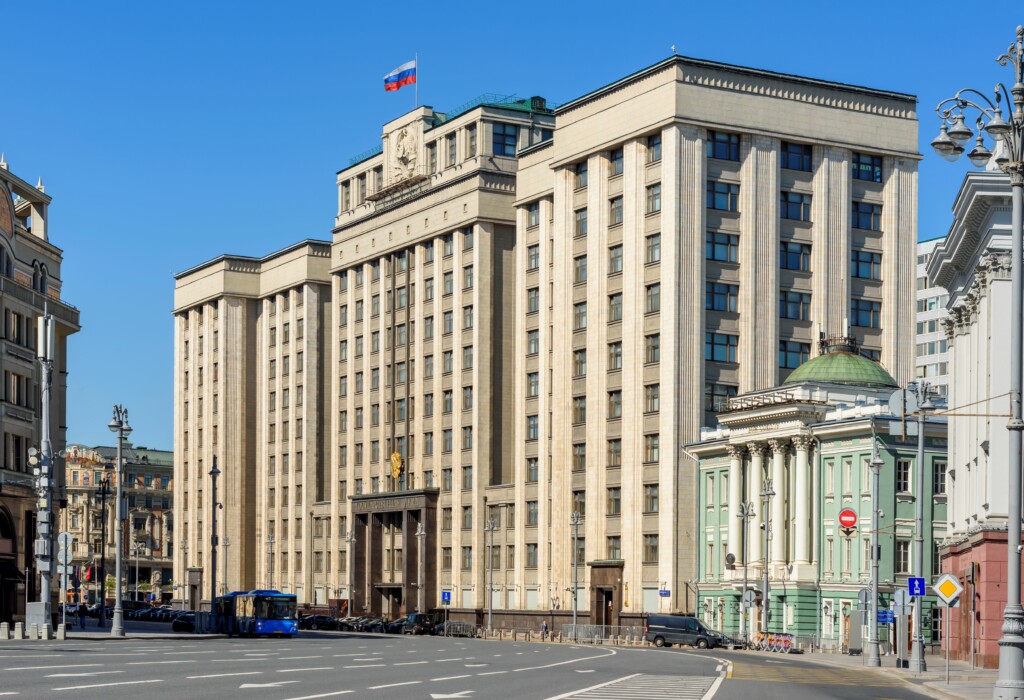Publications

Session V: Rejecting Russian Spheres of Influence
Where and how must we reject Russian spheres of influence? The fifth panel of Helsinki Security Forum 2023 delved into the resistance to Russian influence both in neighbouring states and in the minds of Western decision-makers.
To kick off the last day of HSF 2023, speakers Senior Consulting Fellow Keir Giles from Chatham House, Research Director Sinikukka Saari from the Finnish Institute of International Affairs, National Security Advisor to the President of the Republic of Moldova Stanislav Secrieru, and moderator Henry Foy, Brussels Bureau Chief of Financial Times, took the stage to address Russian spheres of influence.
The panel opened with a video message from the Deputy Chief of Staff of the Office of the President on Ukraine, Ihor Zhovkva. Zhovkva spoke to the Ukrainian experience of rejecting Russia’s attempts to establish control in its self-declared ‘spheres of influence’ and the need for a paradigm shift in how the rest of the world understands Russia on the global stage. He also spoke to President Volodymyr Zelensky’s peace formula plan, which beyond establishing peace in Ukraine, is intended to prevent conflict and promote peaceful coexistence globally.
Turning the discussion to the overall concept of Russian spheres of influence, Sinikukka Saari summed up the view from Moscow.
“Russia thinks that for smaller states in its vicinity, sovereignty is always relative.”
Saari explained that the prevailing school of thought in the Kremlin assigns the responsibility to smaller states to negotiate the limits of their sovereignty with great powers. While Russian foreign policy thinking on the so-called ‘near abroad’ continues to operate on these assumptions, the reality on the ground is changing quickly. According to Saari, Russia’s influence in the region has been growing weaker for some time.
“Since the end of the Cold War, Russia’s role and power in this region has really weakened, evaporated.”
“Since the end of the Cold War, Russia’s role and power in its neighbouring region has weakened.”
Stanislav Secrieru, spoke to the experience of Moldova in rejecting Russian spheres of influence and drawing closer to European integration. As Moscow’s political influence wavers, the harder Russia tries to restore regional power, the stronger resistance on the part of its neighbours grows, Secrieru explained.
Doing away with Russian spheres of influence manifests itself in political rhetoric, but also in concrete action. In practice, this means reducing dependency in the energy sector, expediting projects that strengthen ties with the EU, and fighting financial crime used to funnel in Russian funds that destabilize democratic institutions.
Secrieru noted that Moldova, for the first time in 30 years, had not imported a drop of Russian gas, and was making moves to forge stronger commercial ties outside of Russia.. Politically, Chisinau is combatting influence operations by expelling Russian diplomats and undercutting the influence of Russian state media in Moldova’s information space. Also key to countering Russian influencing attempts is the nurturing of a strong civil society.
“Strong civil society is of importance to maintaining stability, security and rule of law. Beyond that, a resilient civil society is important in debunking myths and disinformation.”
“A strong civil society is of importance to maintaining stability, security and rule of law.”
But what kind of change in thinking is needed in the West? Keir Giles spoke to the mental spheres of influence to be done away with among decision-makers when making Russia policy.
“The problem is not so much that Russia has this idea — the problem is when it’s acquiesced in and endorsed by Western countries, the EU and NATO”, Giles described.
According to Giles, policy-makers have for too long operated on the assumption that Russia indeed deserves preferential status in regional influence in neighbouring states, ignoring the agency of those smaller states. However, this paradigm shift does not come easy. The ideas are so deeply engrained in people’s conception of Russia that it is taking more than the horrors played out in Ukraine to change people’s minds, Giles described.
Reaffirming Giles’ point, Sinikukka Saari noted that for quite some time, Ukrainian counterparts would question what they perceived as a ‘Russia first policy’ on the part of the EU and the West at large. Russia was able to set the regional agenda and the EU often sought to find solutions that ensured carrots for Moscow. Proof that we are headed in the right direction, however, can be found in the merit-based EU membership processes of Ukraine and Moldova.
“We are re-evaluating our perceptions and I think it’s very healthy — this is a European debate”, Saari said.
“Western policy-makers have for too long operated on the assumption that Russia indeed deserves preferential status in regional influence, ignoring the agency of smaller states.”
Paramount will be remembering these lessons when it comes to determining what is an acceptable plan for peace in Ukraine. According to Giles, it is only by ignoring the realities of Russian occupation — as we see today in Eastern Ukraine or historically in Estonia for example — that Western leaders can suggest settlement with Russia in exchange for territory may be an option. It is also key to narrate the threat Russia poses to a Western audience in a way that does not place undue distance between the West and conflicts in the independent states near Russia.
“This is not a Ukraine problem, this is not a temporary problem — Ukraine is just the frontline of this broader conflict which involves us all”, Giles said.
Watch the full discussion here and read the HSF report here.

HSF 2025 asks ‘The Hour of Europe’: Can the old continent chart a new course for its future?
Helsinki Security Forum 2025 brings experts and decision-makers together to ponder the hard questions and explore Europe’s path forward.

Helsinki Security Forum 2024 addresses the need for European total defence
The third annual Helsinki Security Forum (HSF) will be held on 27–29 September 2024. This year’s conference is titled Towards...

for HSF Blog
Rejecting Russian Spheres of Influence
The EU has rejected the language of spheres of influence in favour of an international order based on common rules...